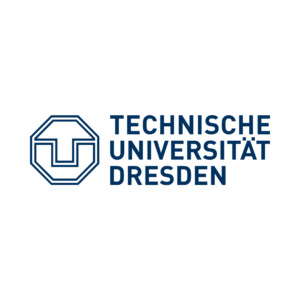TUD Dresden University of Technology is one of the largest Universities of Technology in Germany and is among the leading and most dynamic universities in the country. With 17 Faculties across five Schools, it offers a widespread range of 119 degree programs and covers a broad spectrum of research. Its focuses on Life Sciences, Quantum Materials, Microelectronics, Tactile Internet, Materials Science, Data-Intensive and Digital Sciences, Circular Economy and Societal Change are considered exemplary across Europe.
About 30,000 students are enrolled at TUD. Internationally, TUD has earned an excellent reputation. About 18% of its students come from abroad. Today, about 9,000 employees from 89 countries work at TU Dresden. Since 2012, TUD has been one of the eleven German Universities of Excellence.
There is a longstanding cooperation with Indonesian HEIs with focus on engineering education and Vocational Education Teacher Training offering programs for postgraduates, doctoral scholars and specialists from selected professional domains. Via the TU Dresden Institute for Further and Continuing Education a high quality program is now offered for applicants from IISMA, provding state of the art competence development in the sector of engineering and vacational education with some components of exposure to German industries.
Academic: GPA of 3.3 or above on their studies to date
English Language:
– IELTS: 6.0 (no band score below 6)
– TOEFL iBT: 80 (with minimum 20 for each component)
– Duolingo English Test: 120 (with minimum 30 for each component)
14 October 2024 – 02 February 2025
Available Courses
Students embark on a comprehensive exploration of the fundamentals of education and culture in Germany with this bachelor module. They gain insights into the historical evolution of German education, delve into cultural traditions, and analyze their influence on contemporary society, fostering a nuanced understanding of this dynamic and impactful cultural landscape.
The students have a basic, systematic professional and adult thinking and can apply relevant theoretical approaches in selected national and international professional and adult fields of activity.
Students know and understand the basic tasks and processes of planning, managing, organizing and evaluating educational institutions and projects. They are able to develop theoretically based solutions for educational management problems and to use suitable instruments. They are able to combine professional and adult education with business management perspectives.
Students will be familiar with theoretical didactic approaches and findings on objectives, methods, diagnostics and evaluation as well as on the quality of implementation of teaching and learning processes in vocational education and will be able to apply these in the planning, implementation and analysis of teaching-learning arrangements in vocational education and training, taking into account the high-quality use of media.
Students are able to apply knowledge of learning and personnel psychology in the context of Vocational Education and Personnel Capa- city Building. They know and understand basic findings on the psychology of teaching and learning, memory, motivation and the recording and assessment of learning performance and can apply these in the context of vocational learning and personnel development.
Based on their knowledge of the characteristics of typical production and service structures, students are able to analyze production and service processes with regard to their educationally relevant characteristics using scientific methods and, based on the results of this analysis, to derive justified consequences for the design of vocational education and training.
Based on the knowledge of international approaches to vocational education, students are able to evaluate the characteristics of vocational education systems taking into account the conditions in their home countries. They are familiar with models of curriculum development in vocational education and have an overview of international standards of vocational teacher education.
Students will be able to name and explain the main features and problem areas of the evaluation of systems, projects and measures in vocational education and training. Furthermore, they will be able to interpret evaluation results, evaluate them according to criteria and use them for the development of vocational education and training systems.
Students will be able to obtain, evaluate, and interpret data using appropriate empirical and hermeneutic methods in the context of addressing vocational education and HR research problems.
Students are able to understand the new curriculum that provides a modular pedagogy-based approach to methodological, didactical, and pedagogical excellence in the field of engineering education. The course is based upon the “IGIP International Engineering Educator” curriculum.
Students are able to apply educational technology findings and methods in the context of vocational training and also with regard to individual competence development. They have the knowledge to conceptualize, design and evaluate scenarios of media-supported knowledge transfer and are familiar with the functions of educational technologies for learning that accompanies the profession and also for self-responsible learning. Against the background of the digital transformation, they are able to conceptualize and design didactic media and to use them sustainably in the sense of the Sustainable Development Goals.
Students are able to coordinate complex processes of teaching and learning in professional training work so that personnel work and personnel development are promoted and supported. They know the tasks, goals and functions of personnel work and development in the context of professional education and training as well as the associated legal foundations. The students are familiar with instruments of personnel work and development and are able to apply them in a targeted manner in professional practice.

